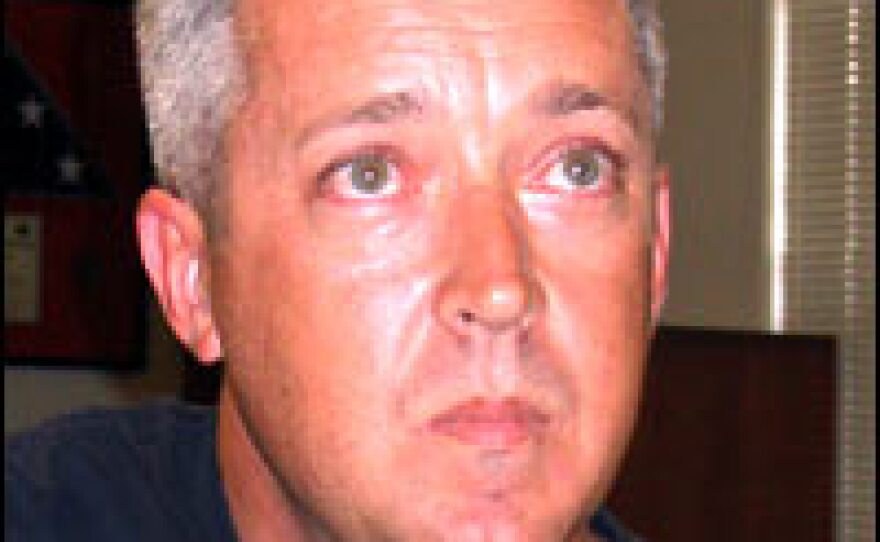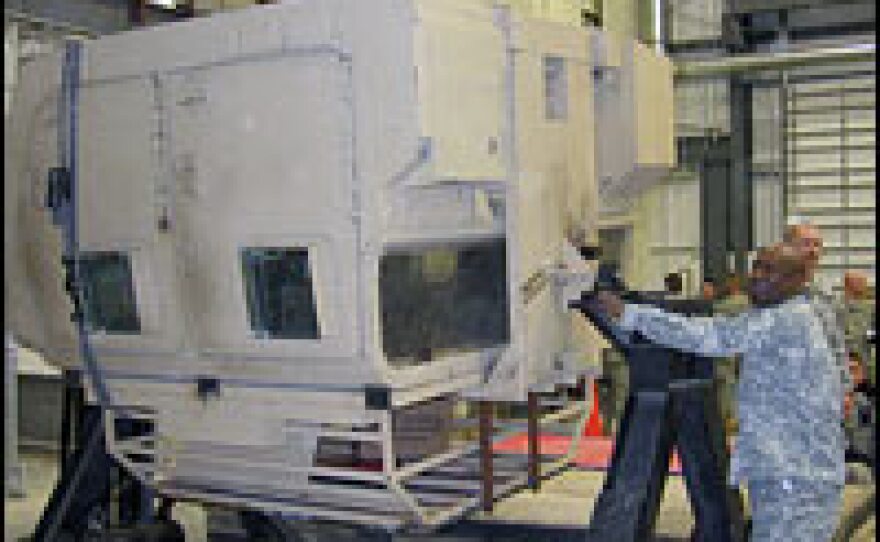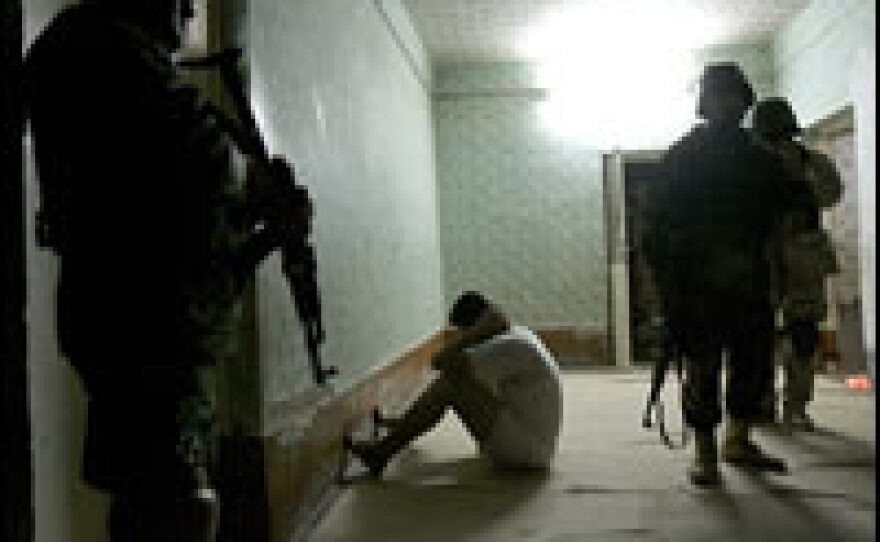

U.S. troops training to advise Iraqi or Afghan security forces have to learn something that's counterintuitive for Army officers — how not to lead.
"We want you to get your Iraqi counterpart or your Afghan counterpart, we want them to be the ones who are the bold, decisive, aggressive leaders," Maj. Gen. Carter Ham says at a training session at Fort Riley, Kan. "It's a tough thing."
You sense how tough when you sit down with Maj. Charles Miller, who's telling trainees about his own recent experience during a year of advising Iraq's security forces.
Miller was an adviser to the Iraqi National Police's "Wolf Brigade" in Baghdad — a unit that has been linked to sectarian torture and killing.
"They were very known for getting the job done, but how they got it was questionable," he says.
The Wolf Brigade was featured on a Cops-like show on Iraqi TV.
"They would go to arrest somebody who was accused of something," Miller says. "At the end of each episode, they would show the guy in custody admitting to everything he did. However, when the guy was in custody, he was bruised up and bloody."
In a typical operation, he says, the predominately Shia brigade would detain, say, 30 people. Twenty-eight of them would be Shia, "two would be Sunni and they would release the Shia and keep the Sunnis and the Sunnis were mistreated. It got to the point where now every time anyone is detained, we have to take a picture of them when they are detained just to document what they looked like when they were detained."
Miller says he often confronted the question of whether to try to stop the abuse. One of Miller's team members told him, "We are sanctioning what the Shia are doing."
But, Miller says, that's not necessarily true.
"We try to keep them as honest as we possibly can while we're with them," he says. "They would have warrants. We would come to find out all the warrants were not legitimate."
If the warrants weren't complete or legitimate, the Americans — whose presence would lend legitimacy to the Iraqi police — refused to accompany the Iraqi police on an operation, Miller says. "It slowed them down some," he adds.
But such toughness came with a price.
Miller suspects that his team was led into an ambush last September by members of the National Police in retaliation for the American advisers being so tough on the Iraqi officers.
"We rolled out to the site, with no clue of where it was," he recalls. "About 45 seconds after we stopped, me and two of my captains dismounted and an IED went off by the first truck. And then we started getting hit with mortars from across the river and machine guns and RPGs. The National Police dismounted their vehicles, took cover in ditch and never fired back."
"Whether we were set up or not, we don't know," Miller says. "That was the opinion that we got. Because we were being so rough on them — sticklers for details."
After the incident, Miller says, he had a long talk with the Iraqi battalion commander, who blamed "bad ammunition" for his forces not coming to the Americans' aid.
From then on, Miller says, the U.S. team refused to go on joint missions unless the Americans were involved in the planning.
The Wolf Brigade was later moved into another sector and the Iraqi brigade commander was fired, Miller says.
The Wolf Brigade was later moved into another sector, but still didn't change its ways. The brigade commander was finally fired. Miller explains why:
"We would go into a Sunni town, cordon the town, search it [and] confiscate weapons," Miller says. "The searches would go great because [of the] American presence. We would leave, and the Wolf Brigade went back in that night and started kidnapping and killing people, [and] burned a couple of houses down.
"And then the local people turned on them and started shooting them. And [the Wolf Brigade] called us on the phone and said, 'Hey, we're being ambushed. Come help us.'
"I told my counterpart that I'm not coming. He said, 'You've got to come help me.' I said, 'No, you're doing something [you're not] supposed to. We're not going.' After that, we had no more problems."
Miller says he's willing to go back — after a break.
He has this advice for Americans now training for similar missions as advisers in Iraq: "Never let your guard down — ever."
Copyright 2022 NPR. To see more, visit https://www.npr.org. 9(MDAzMjM2NDYzMDEyMzc1Njk5NjAxNzY3OQ001))







